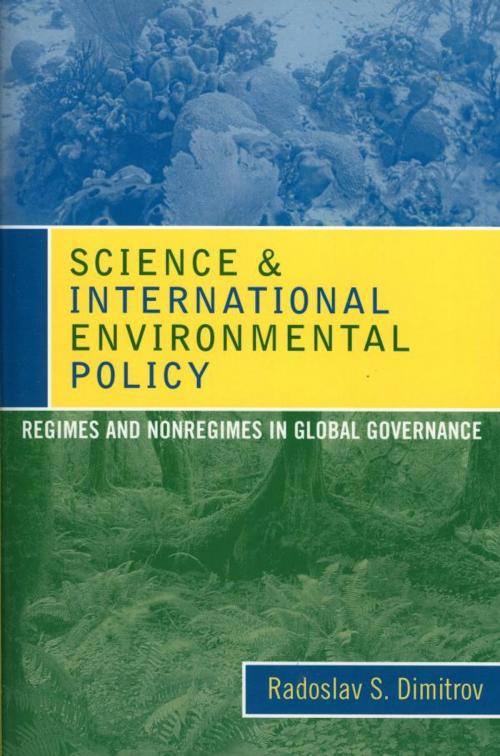Science and International Environmental Policy
Regimes and Nonregimes in Global Governance
Nonfiction, Social & Cultural Studies, Political Science, International, International Relations| Author: | Radoslav S. Dimitrov | ISBN: | 9781461642770 |
| Publisher: | Rowman & Littlefield Publishers | Publication: | November 9, 2005 |
| Imprint: | Rowman & Littlefield Publishers | Language: | English |
| Author: | Radoslav S. Dimitrov |
| ISBN: | 9781461642770 |
| Publisher: | Rowman & Littlefield Publishers |
| Publication: | November 9, 2005 |
| Imprint: | Rowman & Littlefield Publishers |
| Language: | English |
The proliferation of environmental agreements is a defining feature of modern international relations that has attracted considerable academic attention. The cooperation literature focuses on stories of policy creation, and ignores issue areas where policy agreements are absent. Science and International Environmental Policy introduces nonregimes into the study of global governance, and compares successes with failures in the formation of environmental treaties. By exploring collective decisions not to cooperate, it explains why international institutions form but also why, when, and how they do not emerge. The book is a structured comparison of global policy responses to four ecological problems: deforestation, coral reefs degradation, ozone depletion, and acid rain. It explores the connection between knowledge and action in world politics by investigating the role of scientific information in environmental management. The study shows that different types of expert information play uneven roles in policymaking. Extensive analysis of multilateral scientific assessments, participatory observation of negotiations, and interviews with policymakers and scientists reveal that some kinds of information are critical requirements for policy creation while other types are less influential. Moreover, the state of knowledge on ecological problems is not a function of sociopolitical power. By disaggregating the concept of 'knowledge,' the book solves contradictions in previous theoretical work and offers a compelling account of the interplay between knowledge, interests, and power in global environmental politics.
The proliferation of environmental agreements is a defining feature of modern international relations that has attracted considerable academic attention. The cooperation literature focuses on stories of policy creation, and ignores issue areas where policy agreements are absent. Science and International Environmental Policy introduces nonregimes into the study of global governance, and compares successes with failures in the formation of environmental treaties. By exploring collective decisions not to cooperate, it explains why international institutions form but also why, when, and how they do not emerge. The book is a structured comparison of global policy responses to four ecological problems: deforestation, coral reefs degradation, ozone depletion, and acid rain. It explores the connection between knowledge and action in world politics by investigating the role of scientific information in environmental management. The study shows that different types of expert information play uneven roles in policymaking. Extensive analysis of multilateral scientific assessments, participatory observation of negotiations, and interviews with policymakers and scientists reveal that some kinds of information are critical requirements for policy creation while other types are less influential. Moreover, the state of knowledge on ecological problems is not a function of sociopolitical power. By disaggregating the concept of 'knowledge,' the book solves contradictions in previous theoretical work and offers a compelling account of the interplay between knowledge, interests, and power in global environmental politics.















